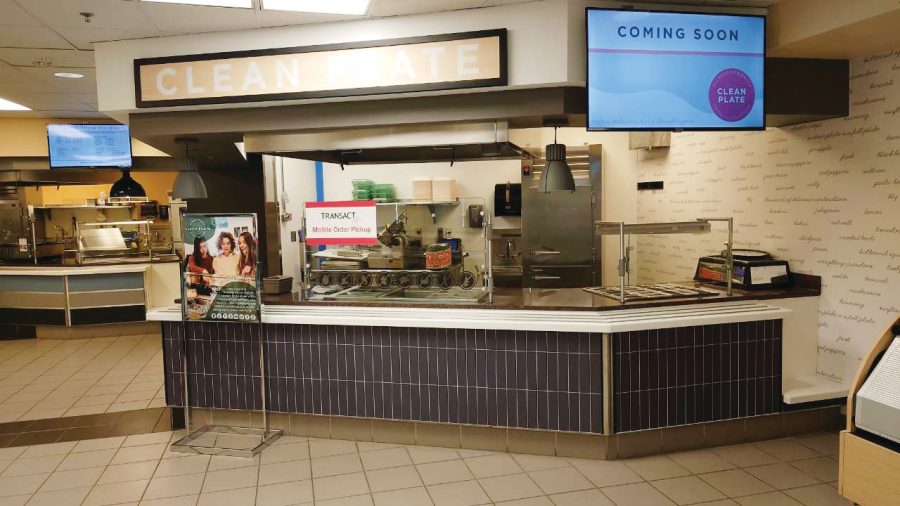Student Union offers healthy alternative
September 1, 2021
South Dakota State University’s latest addition to campus dining, Clean Plate, offers students and faculty a way to eat healthy while avoiding common allergens.
According to Vice President of Student Affairs Doug Wermedal, the move to provide inclusive dining options directly responds to the needs students have expressed.
“More and more students are looking to be sure of the ingredients in their food. They like to be aware of the nutritional values,” Wermedal said. “There’s no cross-contamination between utensils as it’s being served and handled.”
Myranda Dunmire, an Aramark employee and registered dietician with Campus Dining, sees the new restaurant as a win for anyone with dietary restrictions.
“Millions of Americans have food allergies, and it’s an aspect of their daily life they can’t avoid because there is no cure,” Dunmire said. “Menu items do not include the top eight major food allergens, including milk, soy, wheat (gluten), fish, shellfish, tree nuts, peanuts and eggs.”
Clean Plate takes the space where True Balance, a similar health-focused chain, operated until this school year. Aramark General Manager Heidi Haro said the motive behind the transition was to bring a “retail” style health food option into the Union instead of the “residential” style that True Balance had there prior.
According to Haro, the residential-style restaurants have some key menu differences. Residential options, like True Balance, now located in Larson Commons, usually provide a home-cooked style meal and are served in an all-you-care-to-eat fashion. Retail options, such as Clean Plate, have a faster-paced, buy-one-and-go focus.
Clean Plate, located in the Student Union, is one of the first restaurants that Aramark opened. The company operates all dining at SDSU and owns several in-house brands, including Grille Works, These & Those Noodles, and True Balance. Aramark also runs several more extensive franchises on campus, including Chick-fil-A and Panda Express, and currently employs 260 workers at SDSU – down from the usual 400.
“Based on traffic, there is a good share of people who want healthy options and use them quite regularly,” Haro said. “A majority of sales are still from Chick-fil-A and Panda Express, [but alternative options are] definitely needed, and we love offering healthy options.”
So far, Clean Plate’s reception has been very positive. According to Chris Knutson, an Aramark chef who works at Clean Plate during lunch on Mondays, the most popular bowls are the Asian bowl, the harvest bowl and the tropical smoothie bowls.
“People are eager to try out all of the bowls, and we’ve had quite a few people with allergies come up who are very happy with [the options],” Knutson said.
ROTC student Karsyn Dorris also found the new restaurant options satisfactory.
“The chicken, banana peppers, quinoa and chicken were all good, and the produce was fresh and not squishy,” Dorris said of the Mediterranean bowl she tried. “I’m disappointed that the containers aren’t biodegradable.”
Despite the name, Clean Plate does not serve food on real plates. Instead, the food comes in plastic containers – a leftover pandemic precaution from last year that could soon be overturned.
“In response to Covid, disposable items were recommended,” Wermedal said. “We have realized some water savings and more sustainable practices in the use of detergents. On the other side of it, unless those [disposable] plates are compostable, there’s a greater generation of [waste].”
The University Food Service Advising Committee will look at the more sustainable practice and how it relates to pandemic conditions.

























